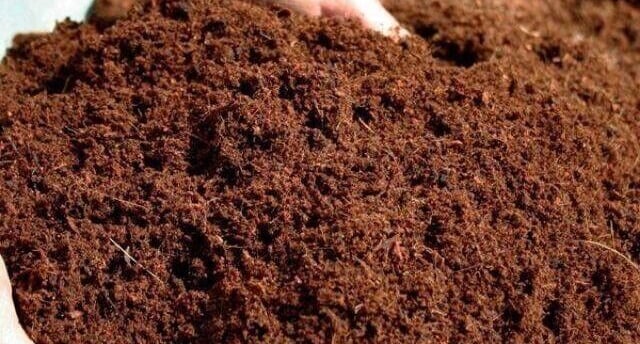Coconut Pith: An Eco-Friendly Growing Medium
Coconut pith, also known as coco peat or coir pith, has emerged as a sustainable and eco-friendly growing medium for gardeners and horticulturists. Derived from the husk of coconuts, this versatile material offers numerous benefits for plant growth while contributing to environmental conservation.


Coconut pith, also known as coco peat or coir pith, has emerged as a sustainable and eco-friendly growing medium for gardeners and horticulturists. Derived from the husk of coconuts, this versatile material offers numerous benefits for plant growth while contributing to environmental conservation. Let's explore why coconut pith is gaining popularity as an eco-friendly alternative in gardening and agriculture.
What is Coconut Pith?
Coconut pith is the spongy, fibrous material found between the outer shell and the seed of a coconut. During the processing of coconuts for coir fiber extraction, the pith is often considered a byproduct. However, its unique properties make it an excellent growing medium for plants.
Key Benefits of Coconut Pith
Sustainable and Renewable
Coconut pith is a byproduct of the coconut industry, making it a sustainable and renewable resource. Utilizing coconut pith reduces waste and promotes eco-friendly practices in agriculture and horticulture.
Excellent Water Retention
One of the standout features of coconut pith is its ability to retain water. The spongy structure of coco peat can hold up to eight times its weight in water, providing consistent moisture to plant roots and reducing the frequency of watering.
Improved Aeration
Coconut pith promotes excellent aeration and drainage, preventing soil compaction and root rot. The porous nature of coco peat ensures that plant roots receive adequate oxygen, promoting healthy root development.
Neutral pH Level
Coconut pith has a neutral pH level, making it suitable for a wide range of plants. This characteristic allows gardeners to use coco peat as a growing medium without the need for extensive pH adjustments.
Nutrient Retention
While coconut pith itself is low in nutrients, it has the ability to retain and release nutrients efficiently. When used in combination with fertilizers, coco peat provides a steady supply of essential nutrients to plants.
Eco-Friendly Alternative
Using coconut pith as a growing medium reduces the reliance on peat moss, which is harvested from sensitive peat bogs. By choosing coco peat, gardeners contribute to the preservation of natural peatland ecosystems.
Applications of Coconut Pith
Seed Starting
Coconut pith is an ideal medium for seed starting. Its fine texture and excellent moisture retention create optimal conditions for germination and early seedling growth.
Potting Mix
Coconut pith can be used as a component in potting mixes for container gardening. It can be combined with other materials like perlite, vermiculite, and compost to create a well-balanced growing medium.
Hydroponics
In hydroponic systems, coconut pith serves as a soilless growing medium. Its ability to hold moisture and provide aeration makes it suitable for various hydroponic setups.
Soil Amendment
Coconut pith can be added to garden soil to improve its structure and water retention capabilities. It helps create a more favorable environment for plant roots, leading to healthier and more productive plants.
How to Use Coconut Pith
Hydrate the Coco Peat
Coconut pith is typically sold in compressed blocks or bricks. To use it, hydrate the coco peat by soaking it in water until it expands and becomes loose.
Mix with Other Components
Depending on the application, mix the hydrated coconut pith with other components like compost, perlite, or vermiculite to create a balanced growing medium.
Fill Containers or Beds
Fill containers, pots, or garden beds with the prepared coconut pith mixture. Plant seeds or seedlings as usual, ensuring they receive adequate water and nutrients.
Conclusion
Coconut pith is a versatile and eco-friendly growing medium that offers numerous benefits for gardeners and horticulturists. Its excellent water retention, aeration, and neutral pH make it suitable for a wide range of applications, from seed starting to hydroponics. By choosing coconut pith, gardeners can promote sustainable practices and contribute to environmental conservation while enjoying healthy and thriving plants.
